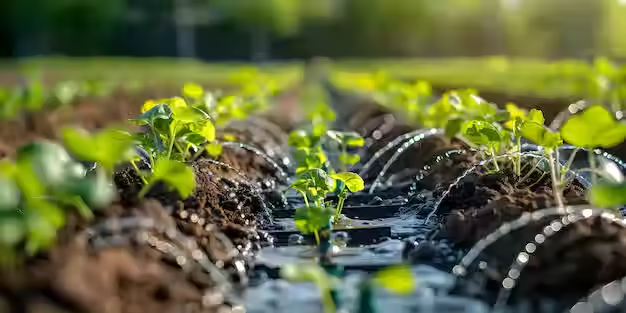How Knowledge Transition and Transfer is Revolutionizing Agriculture in Canada
- James
- May 1, 2025
- 2 min read
How Knowledge Transition and Transfer is Revolutionizing Agriculture in Canada
It is revolutionary to see how research and science can be transferred from academia to the farm and have successful results. Scientific research and farming are two different worlds, but when both can be combined, everyone benefits: the researcher, farmer, and the consumer.
Knowledge Translation and Transfer (KTT) is all about the ability to bridge that gap. It turns research into a practical application that farmers can use in real-time. It ensures that significant research is not just confined to a lab or the select few academics who championed it but actively used to improve farming practices, policies, and technologies.
History
The KTT concept first played a significant role in Ontario, where it has been implemented in research funding programs since 2008. Two of KTT's largest success stories have been the Beef Cattle Research Council, which funded projects that turned into innovative practices, such as chemical-free sanitizers for beef processing plants, which improved safety and operational efficiency. The Ontario Agri-Food Innovation Alliance has been a key driver by collaborating with industry and stakeholders to accelerate the adoption of new agricultural technologies.
Implementation
Some strategies to make agricultural knowledge accessible and actionable to farmers include letting the farmers lead the research. An example is programs like the Ecological Farmers Association of Ontario. The association empowered farmers to conduct their studies, making research relevant to their needs.
Organizations like the Grain Farmers of Ontario have developed structured approaches to ensure that research findings are effectively communicated and implemented. Networking is an essential implementation method. Research outcomes can be turned into practical applications through events, workshops, and in-person consultations. Publications farmers can readily access have proven to be successful. Research can be translated and simplified into guides, manuals and digital tools to make findings more user-friendly.
Technology
The rise of mobile apps, online forums and cloud-based databases has revolutionized how quickly and conveniently information can move between researchers, farmers, policymakers and industry stakeholders. For farmers who live in rural and remote areas, online and mobile technology allows them to access up-to-date agricultural insights, market trends and best practices.
It also allows for real-time data sharing to ensure that the correct decision-making can be made, ultimately improving productivity. Artificial Intelligence can process vast amounts of agricultural data and identify patterns, while automation and innovative technologies such as lot sensors tracking soil moisture and drones monitoring crop health ensure real-time monitoring and reduce human error.
KTT in NFLD/LAB
In Newfoundland and Labrador, KTT will be used thoroughly to help farmers make smarter decisions in real-time. The method supports sustainable farming with better nitrogen management, cover crops, and rotational grazing. Establishing the connections between research and everyday farming is positively shaping the future of agriculture in our province and throughout Canada. To learn more about Agriculture and Agri-Food Canada’s On-Farm Climate Action Fund administered by NLFA in Newfoundland and Labrador, visit www.acsnl.ca or on NLFA social media channels.





















Comments